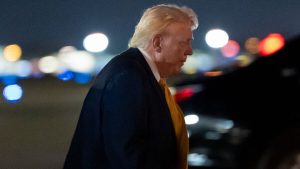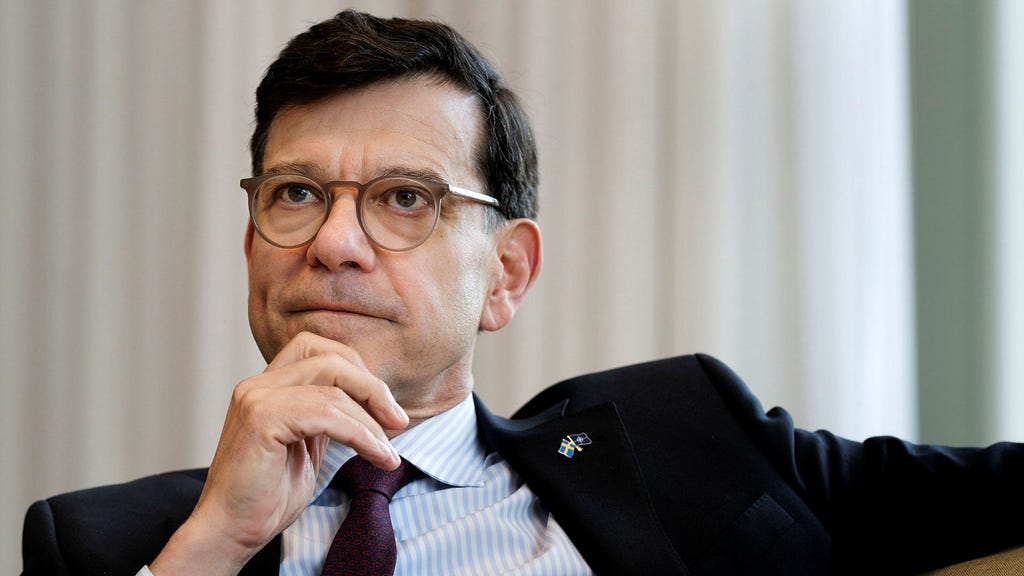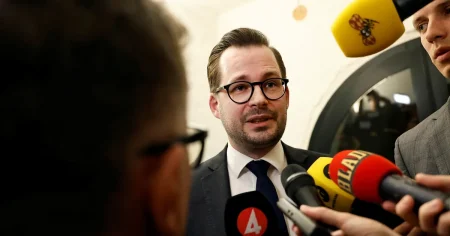A Security Lapse and its Repercussions: The Case of Henrik Landerholm
Henrik Landerholm, Sweden’s National Security Advisor, a pivotal figure in Prime Minister Ulf Kristersson’s inner circle, found himself embroiled in a security breach in March 2023. Landerholm, whose office handles highly sensitive intelligence information, inadvertently left four classified documents in a locked cabinet at the Gällöfsta conference center. While Landerholm initially claimed via social media that a staff member retrieved the documents, further investigation by the newspaper Dagens Nyheter (DN) revealed a more concerning reality: it was cleaning staff at the conference center, not government personnel, who discovered the sensitive material. This revelation raises serious questions about the handling of classified information within the highest levels of the Swedish government.
The discovery by unauthorized personnel underscores a critical failure in adhering to security protocols. According to security experts consulted by DN, when unauthorized individuals access classified documents, the information is considered compromised. This incident is not an isolated occurrence for Landerholm. DN previously reported two other security lapses involving the National Security Advisor: leaving his mobile phone at the Hungarian Embassy and misplacing a notebook at Sveriges Radio. Taken together, these incidents paint a picture of repeated negligence regarding sensitive information, raising concerns about Landerholm’s suitability for his high-security position.
This latest incident has sparked a wave of criticism and calls for accountability. Lennart Ohlsson, former head of the Supreme Commander’s security control operations at the Military Intelligence and Security Service (MUST), expressed grave concern over Landerholm’s apparent lack of security awareness, calling it unprecedented in his 40 years of experience within the Armed Forces. He emphasized the fundamental importance of safeguarding classified documents. The political fallout from this incident has also been significant, with the chairman of the parliamentary defense committee, Peter Hultqvist, demanding that Prime Minister Kristersson appear before the committee to address the matter.
The government’s response to the incident has been met with skepticism. While a damage assessment was conducted, it remains heavily redacted, citing national security concerns. The government’s assertion that no further action was required beyond a conversation with Landerholm has done little to quell the growing unease. The lack of transparency surrounding the incident fuels concerns about a potential cover-up and raises questions about the government’s commitment to upholding security protocols. Furthermore, the delay between the discovery of the documents on March 14th and the dated damage assessment of March 21st raises questions about the promptness and thoroughness of the government’s internal investigation.
The classification of the documents adds another layer of complexity to the situation. Although none of the documents reached the highest classification level of "qualified secret" – information that could cause "extremely serious" damage to national security if disclosed – at least one was deemed "security classified," meaning its disclosure could harm Sweden’s security. The government’s reluctance to disclose further details about the content of the documents only serves to heighten public concern and speculation. The incident highlights the potential vulnerability of sensitive information even within supposedly secure environments.
The repeated nature of Landerholm’s security lapses necessitates a thorough examination of the government’s security practices and a reassessment of Landerholm’s fitness for his role. The incident has eroded public trust and demands a transparent and accountable response from the government. The opposition’s call for Prime Minister Kristersson to address the issue directly reflects the seriousness of the situation and the need for a comprehensive explanation. The long-term consequences of this incident remain to be seen, but it无疑 casts a shadow over the government’s credibility and raises serious questions about its commitment to protecting sensitive information.














